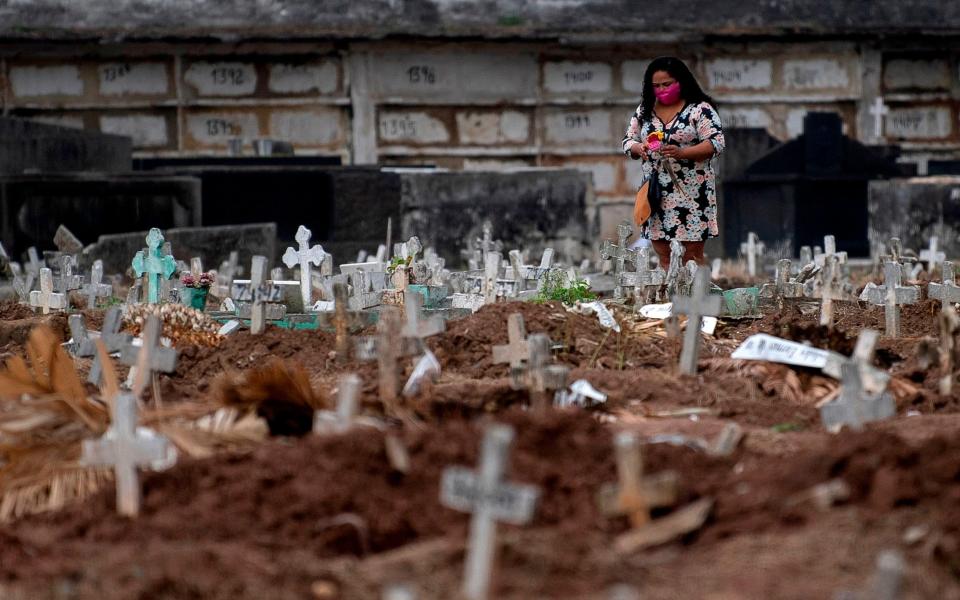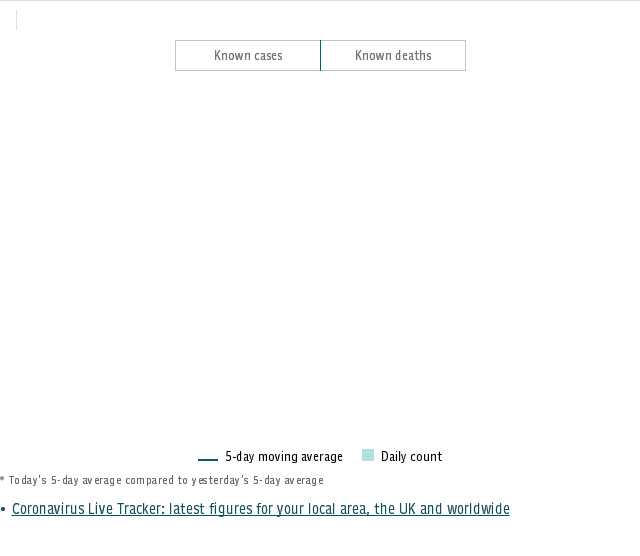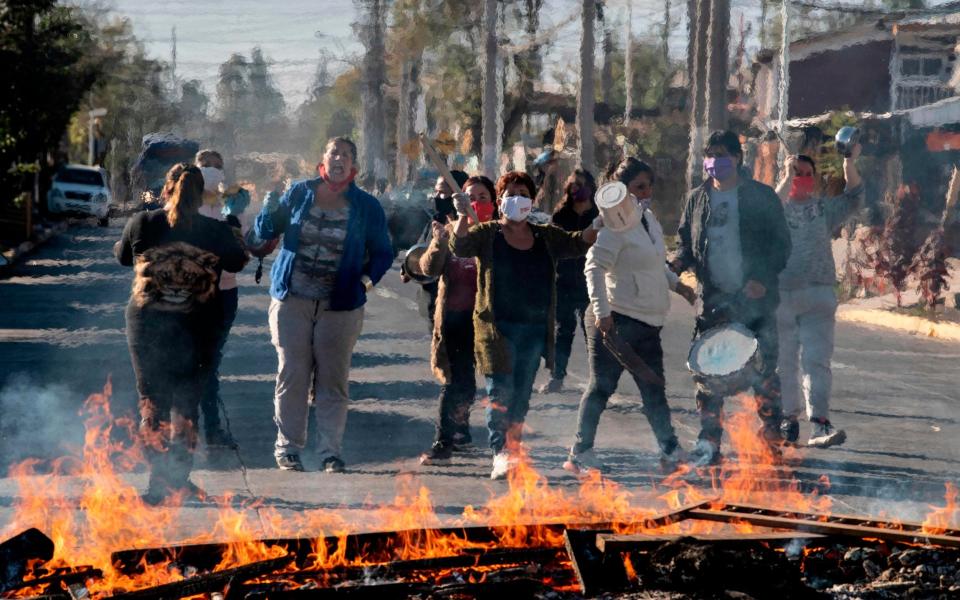Latin America has become the epicentre of the coronavirus pandemic, WHO says
Latin America has become the new epicentre of the coronavirus pandemic, with infections and deaths set to substantially worsen in the coming weeks, the World Health Organization said on Tuesday.
The region has confirmed just under 700,000 cases and 33,000 deaths. But grim reports of cities resorting to mass graves and low testing rates in the majority of countries have led to concerns that these figures are a significant underestimate.
“There can be no doubt our region has become the epicentre of the Covid-19 pandemic,” Dr Carissa Etienne, director of the WHO’s regional office, the Pan-American Health Organization (PAHO), told a virtual press conference on Tuesday.
“Now is not the time to relax restrictions or scale back preventative strategies, now is the time to stay strong, to remain vigilant, and to aggressively implement proven public health measures,” she added.

The coronavirus is believed to have first arrived in Latin America in late February and has since taken hold in most of the region, with daily infections now surpassing the count in Europe and the United States.
There have been repeated warnings that the outbreak could be exacerbated by underfunded hospitals and stagnating economies, as Latin American governments have far fewer resources to throw at the virus than many of those in Europe or North America.
But high rates of diseases that cannot be transmitted person to person, including diabetes and cancer, could also cause a higher death rate, said Dr Etienne.
“One of the most concerning aspects of the Covid-19 pandemic is the disproportionate impact of the virus on people suffering from non communicable diseases (NCDs),” she said.
“We have never seen such a deadly relationship between an infectious disease at NCDs. Some of the data is truly alarming, especially for our region where NCDs are pervasive.”
Dr Etienne warned countries to prepare for and introduce measures to prevent further coronavirus infections, adding that there would be “very tough” weeks ahead for the region. But she also urged them to ensure that routine health services are not disrupted - a move that could trigger a “parallel pandemic of preventable deaths for those with NCDs.”
Brazil is experiencing Latin America's most severe outbreak, with 23,473 deaths and close to 375,000 infections reported - a total second only to the US.
These stark figures are forecast to worsen in the coming weeks. PAHO modelling has predicted that the country will be reporting 1,020 fatalities a day by late June, culminating in a total death toll of 88,300 by August 4.

Jair Bolsanaro, the country’s far-Right president, has repeatedly downplayed the crisis, calling Covid-19 a “little flu” and arguing that concerns are overblown.
He has accused state governors leading coronavirus control measures of inciting panic with allegedly excessive stay-at-home recommendations and claimed that restrictions will wreck the economy and produce worse hardship than the Covid-19.
But as the number of deaths surpassed the US’ daily today on Tuesday, becoming the worst in the world, the White House unexpectedly brought forward a ban on international travellers arriving from Brazil by two days.
Moving the ban forward from Thursday was unexplained but Donald Trump’s administration had previously said restrictions were planned because of the severity of the outbreak in Brazil and that would prevent further cases in the US.
The restrictions do not apply to US citizens or legal permanent residents, but any foreign national who has been to Brazil in the two weeks before arriving in the US will be denied entry.
The PAHO on Tuesday refused to be drawn into a discussion about whether nations within Latin America should also close their borders to Brazil, stressing that it did not make recommendations about trade and travel restrictions.
The agency did, however, point out that Brazil, home to 200 million people, does not have the highest incidence rate in the region. That undesirable title goes to Chile, which has a rate of 3,800 cases per million people and Peru, with 3,600 per million - compared to a rate of roughly 1,700 per million in Brazil.
In Chile, the president has admitted that the healthcare system is under strain and “very close to the limit” due to a recent rapid surge in cases. In Santiago, Chile’s capital, protests have erupted due to food shortages caused by the strict lockdown.
Similar scenes have played out across the region. On Tuesday, people in Ecuador protested against the government’s response to the virus.
Last month authorities in the country’s second city, Guayaquil, were so overwhelmed that hundreds of bodies remained unburied and cardboard coffins lined the streets, while at least 150,000 jobs have been lost due to Covid-19.
Meanwhile Venezuela is once again teetering on the edge of an emergency, according to a report published on Tuesday by Human Rights Watch and Johns Hopkins University in the US.

It said that the country’s economic, political and health crisis has left it chronically underprepared to tackle a pandemic, with particular concerns around access to clean water and personal protection equipment (PPE) in hospitals.
Close to 65 per cent of healthcare workers said access to clean water was inconsistent, while 13 of 16 hospitals surveyed in Caracas, the capital city, said they were reusing face masks and seven reported shortages of gloves.
“The humanitarian crisis in Venezuela and the breakdown of the health system have created dangerous conditions conducive to rapid community spread, unsafe working conditions for health personnel, and high mortality rate among patients in need of hospital treatment,” said Dr Kathleen Page, of the Johns Hopkins University School of Medicine.
Venezuela has reported 1,100 cases and 10 deaths, but the report warned that this is likely to be a vast underestimate given the limited availability of Covid-19 tests.
There are also concerns that, as work becomes increasingly scarce in neighbouring countries, many migrants who left Venezuela from Colombia have been forced to walk home, potentially bringing Covid-19 with them.
“Now, is a time for action, not for diversion”, said Dr Etienne. “The lives and well being of millions across our region depend on it. ”


